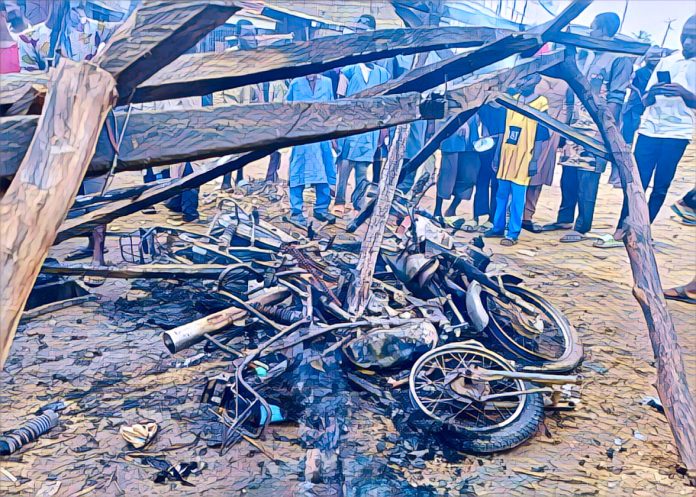Key Points
-
At least five people killed in Kebbi mining clashes.
-
State government imposes curfew to curb violence.
-
Rival miners fight over control of gold-rich areas.
This week, violence broke out in Kebbi State, northern Nigeria, when rival groups of miners fought each other, killing at least five people. The violent fights, which hurt dozens of people, led the state government to declare a curfew in the hopes of stopping the violence from getting worse.
The unrest, which started on Monday in the small towns of Birnin Kebbi and Argungu, has gotten a lot of attention from the whole country. Authorities are having a hard time keeping things under control, which could make the situation even worse.
Kebbi, a state that has long been known for its gold deposits, has recently seen a lot of artisanal miners come to try to get some of its rich resources. But competition for these resources has caused tensions to rise, especially as illegal mining operations grow without any control.
Atiku Bagudu, the governor of the state, has been getting more and more criticism for his administration’s failure to keep law and order and run the mining industry well.
Miners fight over areas with a lot of gold
Birnin Kebbi seems to be the center of the violence, which is happening in an area where illegal mining is common.
According to a report by Vanguard news, the armed groups of miners, many of whom had machetes, guns, and other weapons, were involved in the fights. Several people who saw what happened said that the violence got worse after two mining groups fought over who would control a gold deposit in the nearby towns of Shanga and Kangiwa.
One of the main groups involved is thought to be a branch of the infamous “Kebbi Gold Syndicate,” which is a loose group of miners and traders that works outside of government rules. People think that the other group is made up of local farmers and smaller artisanal miners who are angry about how little help and safety the government has provided in the area.
Reports from the area say that miners stole from homes and attacked other camps, making the situation very chaotic. Along with the deaths, a number of homes were burned down, and many businesses in Argungu had to close because of the violence. Ibrahim Sani, a spokesperson for the local police, confirmed the deaths but would not say what caused the fights.
Government puts a curfew in place and sends in security forces
The Kebbi State government put a curfew in place on Tuesday to try to get things under control. People couldn’t move around between 6 p.m. and 6 a.m. State officials sent more police and military personnel to the area, but things stayed tense because the authorities had trouble keeping things under control.
In a public statement, Governor Bagudu admitted how serious the situation was. “We can’t let the lawlessness in the mining industry go on. He said, “We will do everything we can to bring back peace and make sure that mining is done legally.” However, a lot of people in the area are doubtful that the government will be able to do anything useful, pointing to years of failed attempts to control mining in the state.
Local miners say that armed groups are still fighting in remote mining settlements, even though there is a curfew and more security is present. Gunfire can still be heard at night. Officials are worried that the violence could spread to nearby states like Sokoto and Zamfara, where illegal mining has also been on the rise.
What caused the violence in mining
It’s not new for there to be fights in Kebbi. Artisanal mining has become a major source of income for the state, drawing thousands of people from Nigeria and nearby countries to the area. But the industry is mostly unregulated, and fights over land ownership, mining rights, and how to share profits have led to ongoing violence.
Experts say that illegal mining in Kebbi and Nigeria as a whole is able to thrive because there isn’t enough formal infrastructure, oversight, or a workable legal system. Many miners work without the protections that come with working in an industry that is regulated by the government. Sometimes, armed groups and criminal gangs have taken advantage of this lack of authority by using violence to keep people from getting to mining sites.
The Nigerian government has been slow to deal with these problems. Local officials say they don’t have enough money or people to police the booming sector. The mining industry in Kebbi has a lot of potential, but the future of the area is still unclear unless major changes are made. More and more people are asking the state government to spend money on making mining safer and more regulated, as well as helping local communities more.



